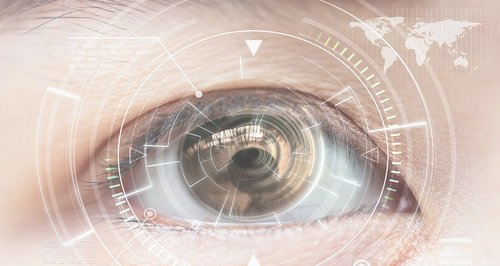Home » Blog » LASIK Basics: Is It For You
LASIK Basics: Is It For You
Posted by: Georgia Center for Sight

LASIK Basics
Changing the way you see the world.
LASIK surgery is the most common form of laser vision correction, a surgical procedure in which a laser is used to reshape the eyes, so that they are closer to their ideal shape for focusing light.
At its core, LASIK is a 2-step process:
Step 1: Flap Creation – A thin flap, like a door, is created in the surface of the cornea and opened, exposing the underlying tissue so the surgeon can reshape the cornea from within. These flaps were originally made by hand, but new laser technology actually allows for bladeless flap creation.
Step 2: Eye Reshaping – The surgeon will work inside the cornea to carefully reshape the eye, removing small amounts of tissue with tiny, rapid bursts from a laser. Once the eye is a more ideal shape for clear, focused vision, the flap is put back into place, where it acts as a natural bandage.
It sounds like something out of science fiction, but don?t worry – the procedure is fast and effective, with minimal discomfort. Plus, almost immediately, your reshaped eyes will very likely be able to focus more accurately, for considerably improved vision (and a considerably happier you.)
Remember: Although LASIK surgery has been shown to be safe and effective, it is still surgery, and like any surgical procedure, there can be complications or side effects. Make an informed decision about LASIK, discuss the risks and benefits of surgery with your doctor.
Is LASIK Right For You?
Now, LASIK is a trusted procedure that can give you life-changing results, but that does not mean it is right for everybody. Before you even think about surgery, you will need to have an initial consultation with Dr. Dong, just to make sure you (and your eyes) are ideal for LASIK.
In addition to testing your vision, to verify that it falls within the range that LASIK can actually help, Dr. Dong will make sure that your prescription has been stable for at least the past year. If your vision is still changing, you might have to wait on surgery.
Certain eye conditions can also affect your surgical options – thin corneas, dry eye, etc. – so Dr. Dong may test for them, just in case. Don?t forget to mention any other medical conditions you have, or any medications you might be taking, as they can affect surgery as well.
Finally, and most importantly, Dr. Dong will make sure you are comfortable and knowledgeable about LASIK, answering any questions you might have and helping you understand what you can expect from the procedure. As with any surgical procedure, there can be risks, complications and side effects that come with LASIK surgery; Dr. Dong will discuss these concerns with you and help you decide if surgery makes sense for you. After all, if you?re not ready for surgery, if doesn?t matter if your eyes are!

